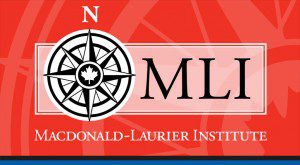MLI Managing Director Brian Lee Crowley welcomes judge’s ruling in Comeau beer smuggling trial defending founders’ intentions on interprovincial trade
OTTAWA, April 29, 2016 – A judge’s decision in the case of a New Brunswick man who bought beer in Quebec is threatening to tear down barriers to internal trade in Canada – and the Macdonald-Laurier Institute’s Brian Lee Crowley says it’s about time.
“The Fathers of Confederation forcefully argued that one of the chief reasons for Confederation was to create a single market that would unite Canadians and sweep away the petty and destructive trade barriers that divided us,” says Crowley. “150 years later this job remains unfinished, but the judge in this case has struck a courageous blow for our founders’ vision. Wherever they are, today there are smiles on the faces of Sir John A. Macdonald and his colleagues.”
Gerard Comeau was charged for transporting 12 cases of beer and three bottles of liquor across the Quebec-New Brunswick border in 2012. On Friday provincial court judge Ronald LeBlanc ruled in Comeau’s favour, writing that “the Fathers of Confederation wanted to implement free trade as between the provinces of the newly formed Canada.”
Comeau fought the charge on the grounds that laws preventing the transportation of alcohol across provincial boundaries — laws that exist all over the country — are an unconstitutional barrier to trade, something the Macdonald-Laurier Institute has repeatedly established in its work on internal trade.
“This case is a welcome opportunity to help tear down the unconstitutional barriers to internal trade that continue to disfigure the economy”, says Crowley, the Managing Director of MLI.

He says the case promises to hold far-reaching implications for internal trade barriers, which create problems far larger than just for those related to beer and liquor. For example, companies’ ability to bid on cross-border contracts and workers’ eligibility for jobs are also affected.
The Macdonald-Laurier Institute has established itself as a thought leader on how to liberate trade between the provinces.
Lawyer Ian A. Blue wrote the 2010 MLI paper “Free Trade Within Canada: Say Goodbye To Gold Seal”, which showed that barriers to trade between the provinces are unconstitutional.
Crowley, meanwhile, has authored several columns and co-authored a paper proposing solutions for a problem that has for too long impeded the free movement of goods, labour and trade within Canada.
History has repeatedly shown, he says, that the premiers are unwilling to take a stand on the issue. Leaving it up to them has produced little other than the ineffective 1994 Agreement on Internal Trade, which has proved useless at solving the problem.
Crowley has argued that the federal government needs to take the issue out of the hands of the provinces. Instead, he says, the feds should get tough by establishing a charter of economic rights that the courts would enforce.
“What makes it worthwhile for local communities to join a federation is at least partly the promise of higher prosperity made possible by larger national markets; but to realise that promise, you must create a nation-building federal government with the power and the will to give all citizens access to opportunity wherever it may be on the national territory”, wrote Crowley in column in the Globe and Mail.
***
Brian Lee Crowley is the Managing Director of the Macdonald-Laurier Institute.
The Macdonald-Laurier Institute is the only non-partisan, independent national public policy think tank in Ottawa focusing on the full range of issues that fall under the jurisdiction of the federal government.
For more information, please contact David Watson, communications director, at ![]() 613-482-8327 x103 or email at david.watson@macdonaldlaurier.ca.
613-482-8327 x103 or email at david.watson@macdonaldlaurier.ca.




